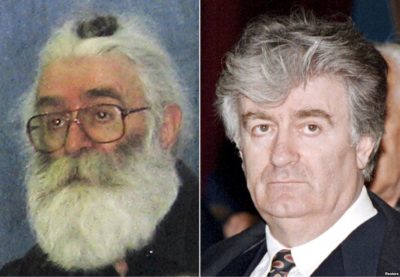 Political monsters go beyond accepted codes of decency again and again and feel no remorse. If they are not caught, unmasked, or stopped cold, they will continue. They believe their power gives them the right to do as they wish to the powerless for “the wolf is entitled to the lamb.”*
Political monsters go beyond accepted codes of decency again and again and feel no remorse. If they are not caught, unmasked, or stopped cold, they will continue. They believe their power gives them the right to do as they wish to the powerless for “the wolf is entitled to the lamb.”*
Some are able to disguise themselves. They escape justice by relocating and fading in, by adopting a new identity, by shifting themselves into a new landscape — Mengele in Brazil, Eichmann in Argentina, Amin in Saudi Arabia. They attempt to remove their atrocities from their actions as easily as a man hangs up a hat. Often, their charisma remains, a self-assurance that gives them a compelling presence.
In The Little Red Chairs, O’Brien brings us Fidelma, an Irish woman unhappy in her marriage and feeling trapped by the isolation and stifling codes of her village. She falls for a newly arrived emigrant, a large, quiet, courtly, self-proclaimed healer and poet, white-bearded as a patriarch, and a man adept in his guise, Doctor Vlad, a character modeled after Radovan Karadzic, the former leader of the Bosnian Serbs, and a war criminal responsible for thousands and thousands of deaths. 
Vlad is capable of tenderness and genuine concern. He knows how to listen. That he could be the “Butcher of the Balkans” is unimaginable. He persuades a suspicious priest and police officer that he is incapable of harm, that he is benign.
When his disguise fails him (upon being recognized by a casualty of his cruelty who is working a party for a caterer), Fidelma’s life also implodes. After a terrible assault and a public shaming, she goes into exile in London, penniless, damaged, adrift. A refugee organization assists her and there she meets survivors of Vlad’s atrocities and hears their stories of torture, mass murder and rape and how they are now trying to put their lives back together. These men and women work menial jobs, and form a population of the invisible and disposable, but their compassion, perseverance and memories give them an individual humanity.
In a dream Fidelma confronts Vlad. She charges him with his crimes. She asks, “Do you have bad dreams, nightmares?” He says, “No…I sleep well…I dream well…I dream of women.” He believes himself to be a full human being. He sees himself in heroic terms and also as the victim of lies and conspiracies, but Fidelma wants to know “Was your essential nature always evil … were you ever innocent?” She does not receive an answer.
She struggles into a new life, one that is scarred and fragile but promising of solace and work.
Vlad performed his awful labor with the help of tens of thousands of his countrymen and women who drove out and murdered their own neighbors. I wonder if tyrants do not call out the cruelty already crouching within their supporters, if they do not give power to their resentments and thus justify their vengeance, if they discern how to foster their malice and ready it to be unleashed when someone finally gives them permission.
You should read this book.
*All quotations are from The Little Red Chairs.
**In Sarajevo in April of 2012, the 20th year since the siege of the city by Bosnian Serb forces had begun, “11,541 red chairs were laid out in rows” along the main street, “one for every Sarajevan killed” during its almost 4 year length; “643 small chairs represented the children killed by snipers and heavy artillery.”